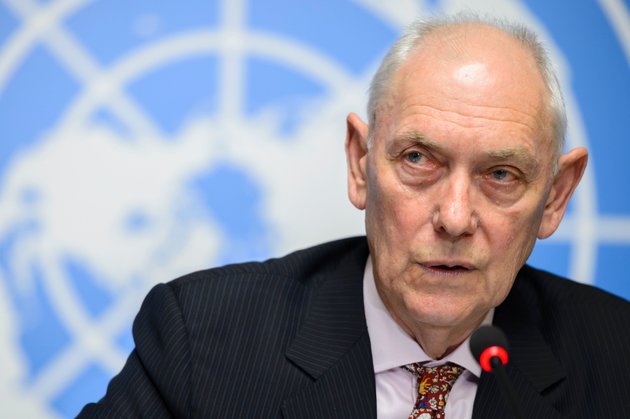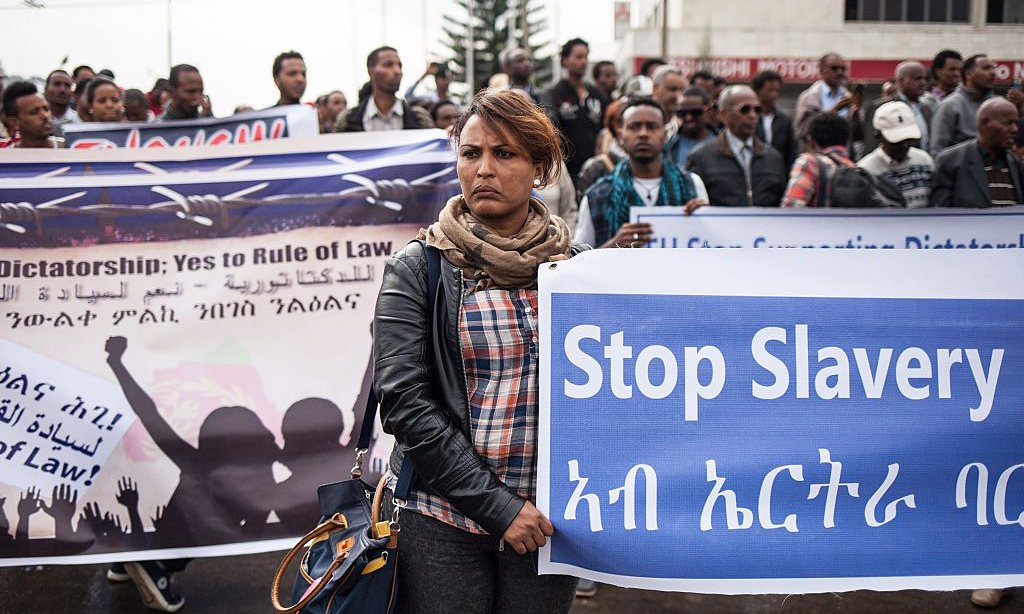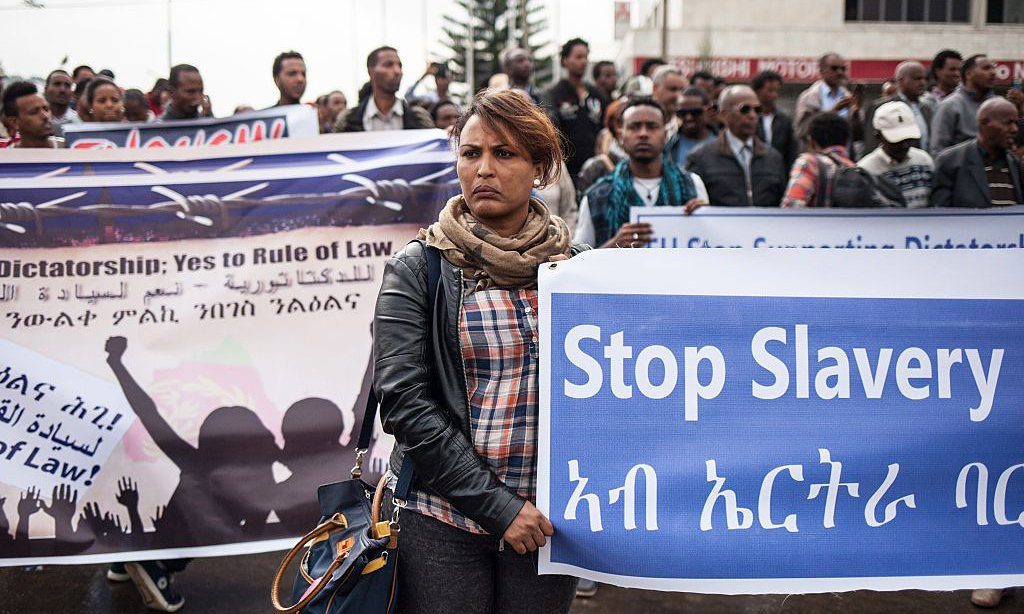
The chair of the Eritrea inquiry, Mike Smith, says the international community must ensure there is accountability for the atrocities being committed. Photograph: Fabrice Coffrini/AFP/Getty Images
The Eritrean government has committed crimes against humanity in a widespread and systematic manner, according to a UN inquiry that calls for perpetrators to be tried by the international criminal court.
Officials in Eritrea, the biggest source of African refugees in Europe in recent years, have enslaved up to 400,000 people, the inquiry says. The government used murder, forced disappearances, rape and torture “to instil fear in, deter opposition from and ultimately to control the Eritrean civilian population since Eritrean authorities took control of Eritrean territory [from Ethiopia] in 1991”, the UN Commission of Inquiry for Eritrea announced on Wednesday.
The report is an expanded version of a preliminary investigation last year.
Mike Smith, the Australian diplomat who chaired the inquiry, said: “Eritrea is an authoritarian state. There is no independent judiciary, no national assembly and there are no other democratic institutions. This has created a governance and rule of law vacuum, resulting in a climate of impunity for crimes against humanity to be perpetrated over a quarter of a century. These crimes are still occurring today.
“There is no genuine prospect of the Eritrean judicial system holding perpetrators to account in a fair and transparent manner. The perpetrators of these crimes must face justice and the victims’ voices must be heard. The international community should now take steps, including using the international criminal court, national courts and other available mechanisms, to ensure there is accountability for the atrocities being committed in Eritrea.”
The government issued an immediate rebuttal, saying the inquiry lacked “the minimum standards of rigour and professionalism”.
Yemane Gebreab, a spokesman for the government, said in a statement that the report “has no solid evidence or firm legal basis to support its extreme and unfounded charges … The methodology the [inquiry] followed in its work is so deeply flawed as to seriously compromise its findings and render its conclusions null and void.”
Based on testimony from 833 Eritreans, the report alleges that the president, Isaias Afwerki, and his aides have eradicated all forms of political opposition and independent media, collapsed the judiciary and abandoned the rule of law. Many described how Eritrea’s unique system of lifelong military service amounts to modern-day slavery.
Some revealed how they were tortured (pdf) inside government detention centres. Speaking anonymously, one man claimed to have been jailed after expressing dissent at a public meeting.
In prison, he said: “I was repeatedly beaten and tortured. Each time two people held me down and two others beat me with stakes and rubbers. They submerged my head in a deep container with dirty water. They beat me on my testicles many times. I fainted each time they did this. I have no testicles now, they disappeared.”
The situation has led hundreds of thousands to flee the country, and some to seek asylum in Europe following hellish journeys across the Sahara and the Mediterranean. Faced with this influx, some western countries, including Britain, are increasingly unwilling to offer Eritreans asylum.

Photograph: Nichole Sobecki/AFP/Getty Images
Diplomatic dispatches and western reports from affluent parts of the capital, Asmara, have added to the perception that life is not as difficult as many Eritreans allege.
But the inquiry accuses such reports of whitewashing reality.
“The facade of calm and normality that is apparent to the occasional visitor to the country, and others confined to sections of the capital, belies the consistent patterns of serious human rights violations,” the report reads.
“The types of gross human rights violations in Eritrea documented by the commission … are not committed on the streets of Asmara, but rather behind the walls of detention facilities and in military training camps. Torture and rape are not normally perpetrated in the open.”
Following the report’s publication, the Refugee Council, a British charity for refugees, said the Home Office should rethink its asylum policy for Eritreans.
The Refugee Council’s head of advocacy, Lisa Doyle, said: “This report should send shockwaves throughout Whitehall. It confirms the ongoing gravity of the human rights situation in Eritrea; once again finding evidence of crimes against humanity.
“When a regime is on the verge of being referred to the international criminal court for gross human rights violations, it is dangerous and absurd that its citizens are being denied refuge in Britain.”

